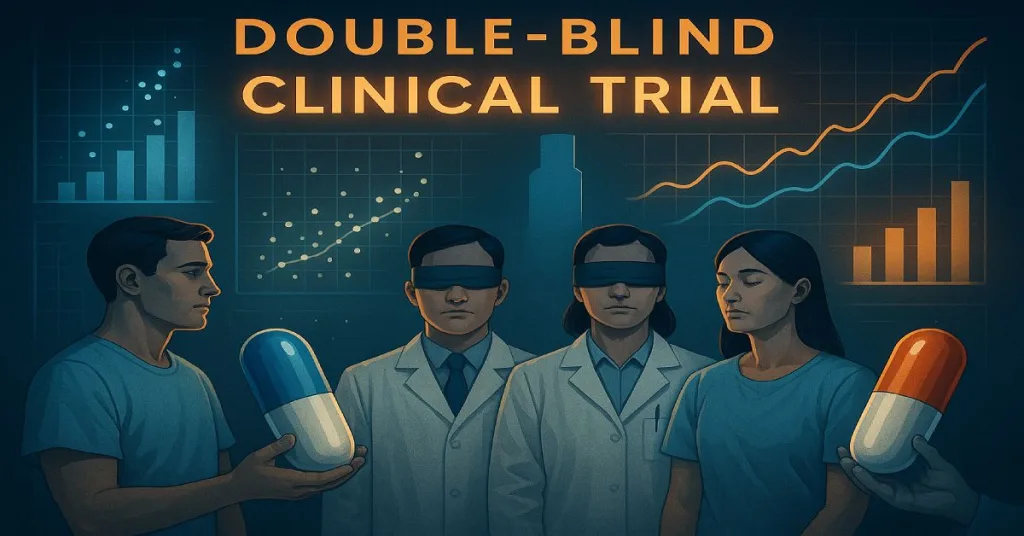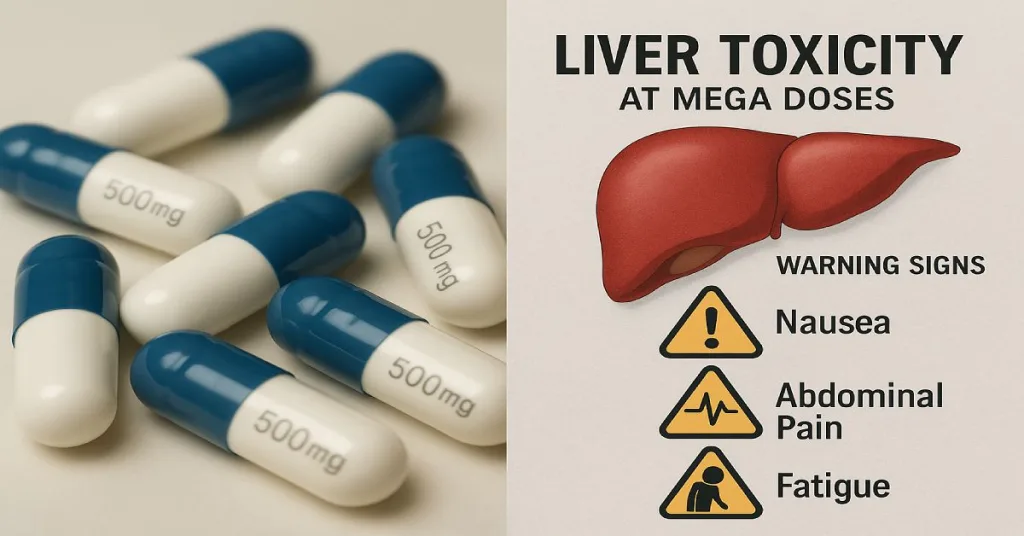Skin Cancer: A Growing Epidemic That Needs New Answers
Skin cancer isn’t just common — it’s exploding. Every year, more than 5 million people in the U.S. are diagnosed with non-melanoma skin cancers like basal cell carcinoma (BCC) and squamous cell carcinoma (SCC). That makes it the most common cancer in the world.
We’ve been told the same prevention advice for decades: wear sunscreen, stay out of the midday sun, cover up with hats and clothing. That advice works — but only if you follow it perfectly. Most people don’t.
That’s why scientists started looking at other tools. And surprisingly, Vitamin B3 — specifically in the form called nicotinamide (niacinamide) — showed up as a potential skin cancer fighter.
But does it actually work? Should you take it? And what are the risks if you start popping 1,000 mg a day? Let’s look at Vitamin B3 and skin cancer — what researchers have actually discovered, and why it matters.
This article contains affiliate links. If you buy through them, we may earn a small commission at no extra cost to you.
What Exactly Is Vitamin B3?
Vitamin B3 is a water-soluble vitamin that comes in different forms:
- Niacin (nicotinic acid): Used for cholesterol. Causes flushing. Not relevant here.
- Nicotinamide (niacinamide): The flush-free form. This is the one that’s been tested for skin cancer prevention.
- Topical niacinamide: Popular in skincare products, but those don’t deliver enough into the bloodstream to affect skin cancer risk.
For clarity: in this article, when we talk about B3 and skin cancer, we mean oral nicotinamide capsules, not niacin or serums.
How Nicotinamide Could Protect Against Skin Cancer
This isn’t magic. There are real biological reasons why nicotinamide might help reduce cancer risk:
- DNA Repair Support
- UV radiation damages DNA in skin cells.
- Nicotinamide boosts NAD⁺, which powers DNA repair enzymes.
- More NAD⁺ = faster repair = fewer mutations that can turn cancerous.
- Immune System Protection
- UV light suppresses local immune defenses, letting precancerous cells survive.
- Nicotinamide reduces this immune suppression, helping the body clear damaged cells.
- Energy Recovery After UV Stress
- UV exposure drains cellular ATP.
- Nicotinamide restores energy balance, keeping skin cells stable under stress.
In short: sunscreen blocks damage before it starts. Nicotinamide helps your cells repair the damage that still gets through.
If you’re considering supplements, make sure you choose nicotinamide (niacinamide) — not plain niacin. Here’s a trusted option that matches the clinical trials.
The Evidence: What the Trials Actually Show
The ONTRAC Trial (Australia, 2015)
- Design: 386 high-risk patients, all with a history of multiple non-melanoma skin cancers.
- Dose: 500 mg nicotinamide, twice daily (1,000 mg/day).
- Results:
- 23% fewer new skin cancers (BCC + SCC).
- 11% fewer actinic keratoses (precancerous lesions).
- Benefits disappeared within months of stopping supplementation.
This was the landmark study that made dermatologists pay attention.

The Veterans Affairs Cohort Study (USA, 2025)
- Design: 33,822 veterans, real-world prescription data.
- Dose: 500 mg nicotinamide twice daily.
- Results:
- 14% overall reduction in new skin cancers.
- 54% reduction in patients who started right after their first skin cancer.
- Strongest protection for squamous cell carcinoma (SCC).
- No significant benefit in organ transplant recipients (likely due to heavy immunosuppression).
Takeaway: starting nicotinamide early matters.
Dietary Niacin Studies
Large U.S. cohort studies found:
- Higher dietary niacin intake correlated with lower SCC risk.
- No clear effect on BCC or melanoma.
- Diet alone provides ~20–30 mg/day — far below the 1,000 mg/day studied.
Translation: food helps, but not nearly enough to replicate the clinical effects.
Clinical Dose vs. What You See on Store Shelves
Here’s where most supplement blogs mislead readers.
- Clinical dose: 500 mg twice daily = 1,000 mg/day.
- Common supplement sizes:
- 250 mg capsules → need 4 per day.
- 500 mg capsules → need 2 per day.
- Multivitamins: Typically 10–30 mg. Useless for cancer prevention.
- Skincare creams: 2–10% niacinamide. Great for skin texture, irrelevant for cancer prevention.
👉 If you’re not hitting the clinical dose, you’re not matching the research. Most studies used 500 mg capsules twice daily. You can find reliable 500 mg nicotinamide here.
Safety: The Good, The Bad, and the Warnings
Here’s the part most “health sites” gloss over — the risks.
What’s Safe
- 1,000 mg/day (500 mg twice daily): Shown to be safe in trials up to 12 months.
- Side effects: Rare. Some people report mild nausea, headaches, or digestive upset.
What’s Risky
- Mega-dosing (>3,000 mg/day): Linked to liver toxicity and insulin resistance.
- Confusing niacin for nicotinamide: Niacin causes flushing and, at high doses, liver stress. Not the same supplement.
Special Precautions
- Liver disease: Use only under medical supervision.
- Diabetes: Nicotinamide may affect insulin sensitivity at high doses.
- Kidney disease or alcohol abuse: Adds stress to detox pathways.
- Other meds: Check with a doctor if you’re on hepatotoxic drugs (e.g. methotrexate, isoniazid).

Who Should (and Should Not) Consider It
- ✅ Should consider:
- People with a history of non-melanoma skin cancers (especially SCC).
- Those with multiple actinic keratoses.
- Fair-skinned, high-risk individuals with heavy sun damage.
- ❌ Should not rely on it:
- People with no skin cancer history (benefits are minimal).
- Those looking for melanoma protection (no evidence).
- Anyone unwilling to continue long-term — protection fades when you stop.
The Big Limitation: Stop Taking It, Lose the Benefit
This is critical: the protection is not permanent.
- ONTRAC showed that once patients stopped nicotinamide, their risk went back to baseline in just months.
- That means this isn’t a “12-month prevention program.” It’s an ongoing daily strategy, like sunscreen or blood pressure meds.
If you can’t commit to consistent use, don’t expect lasting results.
B3 vs. Sunscreen: Different Roles, Same Team
- Sunscreen: Blocks UV damage before it happens.
- Nicotinamide: Repairs and stabilizes cells after UV exposure.
- Best results = both together.
Think of sunscreen as the goalie and nicotinamide as the defense line. Neither wins the game alone.
The Bottom Line
- Vitamin B3 in the form of nicotinamide can reduce non-melanoma skin cancer risk in high-risk patients.
- The correct dose is 500 mg twice daily (1,000 mg/day).
- It’s safe at that level for most people, but higher doses can damage the liver and worsen insulin resistance.
- It does not prevent melanoma, and it does not replace sunscreen.
- Benefits vanish when you stop taking it.
If you’ve had non-melanoma skin cancer before, it’s worth discussing with your dermatologist. If you haven’t, sunscreen and lifestyle changes remain the front line. For people at high risk, nicotinamide is worth discussing with your dermatologist. If you want to try it, look for a pure, no-flush formula like this one.
Sources
- American Cancer Society – Key Statistics for Basal & Squamous Cell Skin Cancer
- New England Journal of Medicine – A Phase 3 Randomized Trial of Nicotinamide for Skin Cancer Prevention (ONTRAC Trial)
- Vanderbilt University Medical Center – Study Reveals Efficacy of Nicotinamide for Skin Cancer Prevention
- National Library of Medicine – Oral Nicotinamide for Non-Melanoma Skin Cancers: A Review
- New England Journal of Medicine – Nicotinamide for Skin-Cancer Chemoprevention in Organ Transplant Recipients
- JAAD Reviews – Examining the Safety of Nicotinamide for Skin Cancer
- MDPI – The Role of Nicotinamide as a Chemo-Preventive Agent in Skin Cancer
see also: AHCC: The Mushroom Supplement That’s Not Like Others